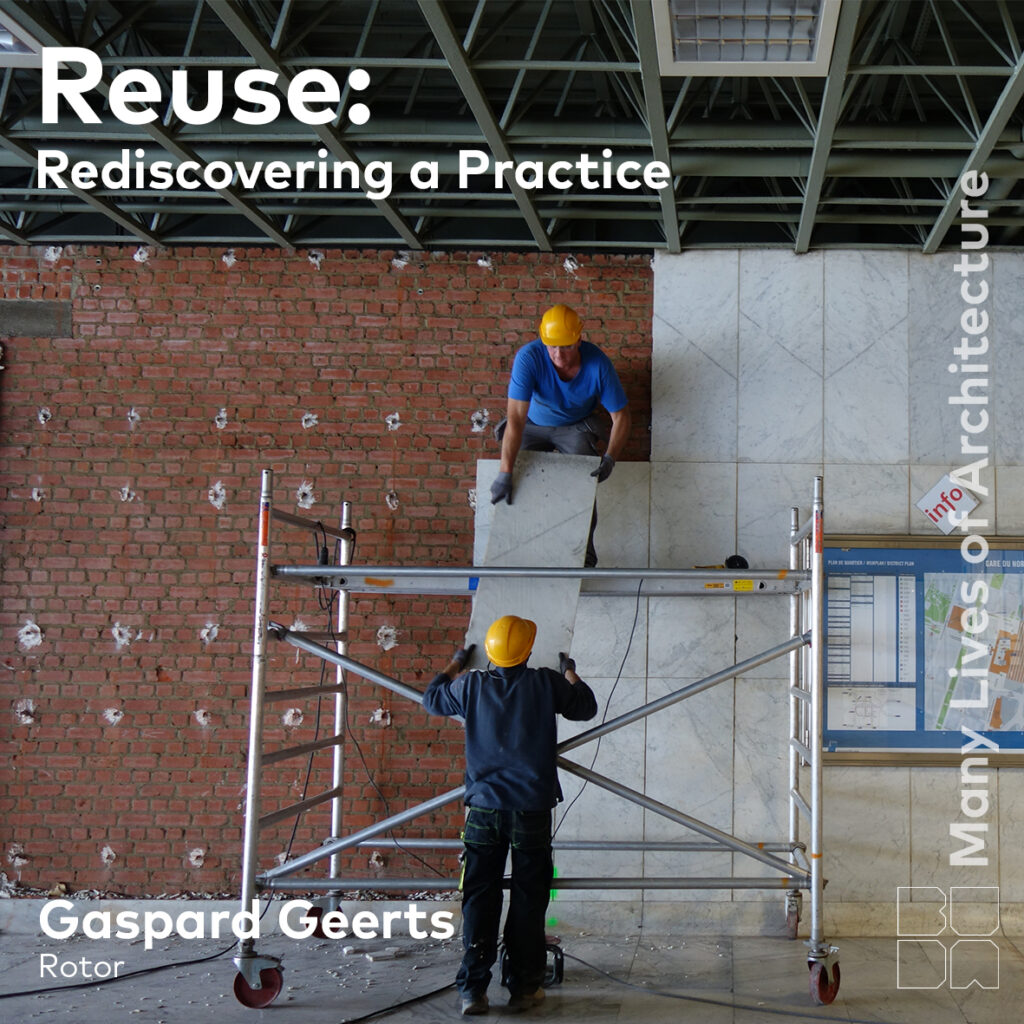
Today, reuse is often presented as a new thing, an innovation that requires complex technical solutions, a whole new branch of building materials and lots of expansive digital support. But in fact, reuse has always existed and continues to do so today, even if it has become a very marginal practice in our Western society. At Rotor, our work has been guided by the principle that “reuse” is more about rediscovering practices that have been swept away by discourses of modernization and innovation than it is about reinventing the wheel. But this does not mean of course that reuse does not require inventiveness or creativity. On the contrary, rediscovering practices and adapting them to our current conditions often requires lots of both. During our presentation we will present a series of projects and zoom in on what point during the design and build process we tweaked contemporary protocols and design conventions. By doing this, we hope to demonstrate the very concrete requirements of the circular economy today, without disregarding what already exists.
Biography:
Architect, Gaspard Geerts joined the Rotor team since 2018 where he works as a project manager for several design, design assistance, exhibition and research projects. Graduating in 2018 from the Faculty of Architecture La Cambre Horta of the Free University of Brussels, he dedicated his final project and thesis to an alternative housing neighbourhood in the south of Brussels where he was born and lived.
About Rotor:
Founded in 2005, Rotor is a multi-disciplinary team that focuses on material flows in industry and construction, with an emphasis on the relationship to resources, waste and reuse. On a theoretical level, Rotor formulates creative strategies for recovery and waste reduction through publications, conferences, workshops and exhibitions. On a practical level, Rotor carries out interior design and assists clients, designers and construction companies in extracting and integrating reused materials into their projects.
Since 2014, the activities of deconstruction, dismantling of building elements and resale are conducted under the name Rotor Deconstruction, a spin-off that specialises in large-scale office interiors. In 2015, Rotor’s work was recognised with the Global Award for Sustainable Architecture, awarded under the patronage of Unesco. Rotor and Rotor DC are based in downtown Brussels and together employ about 35 people.
For further information on Rotor’s work and publications: Rotor DC: reuse made easy | Rotor (rotordb.org)
Date: 06/03/2024 Wednesday
Time: 11.30 (IST), 9.30 (CET)
Place: Online Lecture
Meeting ID: 893 309 4302

